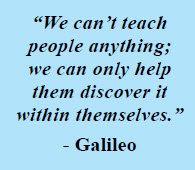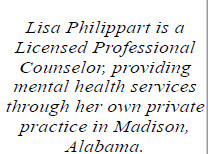 By: Lisa Philippart
By: Lisa Philippart
The most common reason that therapy doesn’t “work” is because there isn’t a good fit between the therapist and the client. For example, a therapist’s approach that is extremely non-directive may work well for a client who is okay with initiating and self-starting in therapy. But this approach may not be as effective with someone who has a very specific and narrow issue like insomnia that requires a lot of education and/or guidance. Finding an effective therapist means finding a therapist who is effective for you. Here are some suggestions on what to look for:
- Be prepared to check out several therapists. It may take one or two “test drives” to find the style and connection you are looking for in a good fit. You essentially need to interview your therapist. Often the therapist will suggest an initial consultation session. From the therapist’s perspective, this is a chance for them to learn about you and your goals and make sure they can be of help to you. But it is also your chance to ask lots of questions, such as: What is your therapeutic orientation? How directive are you in session? How frequently do you meet with people like me? How is your approach unique or different from other therapists?

- Credentials are overrated. Don’t worry too much about whether your therapist is a psychologist, social worker, or counselor. It is important that the therapist is licensed. And, that they have experience and training appropriate to your goals. Pay attention to personal factors like personality, communication style, and how you feel when you interact with them.
- Look for the two C’s: comfort and challenge. Good therapists are able and willing to provide both comfort and challenge in session. When you are with them you feel supported, understood, and genuinely cared about. At the same time, they are not afraid to be direct, honest, and to push you even when it’s difficult or uncomfortable. These therapists care deeply about the relationship, and they are willing to risk it to help you succeed.
- Don’t expect to be saved or fixed. You are responsible for doing most of the work in therapy. A good therapist helps you do the work…but they can’t do it for you. You are looking for a trainer—someone who will guide and support you in doing the very hard work for change that only you can do.

- Related to #4 is the realization that what you get out of therapy largely depends on what you put into it. Remember there is nothing magical about therapy. People who benefit from therapy long term are usually the ones who are willing to stick with the process…not necessarily the same therapist. It requires a willingness to be honest about motivations, expectations, and frustrations, and how they might be impacting progress.
- You don’t have to explain your life story right away. You may be understandably hesitant to dredge up all the painful details of your past over and over again to complete strangers. Some context about your background is helpful for the therapist initially. It’s totally normal for a person’s history to unfold over weeks or months of therapy. Therapists need to earn trust just like anyone else.
- Being completely honest, therapy may not always be the answer. Some people get more benefit out of a good self-help book at the right time in their lives. For some, medication seems to work more effectively. Others just need a real friend, not a therapist.
So, take the time to find the right therapist for you. The results can be life-changing!
By: Lisa Philippart
Licensed Professional Counselor










 June 20, 2025
June 20, 2025



